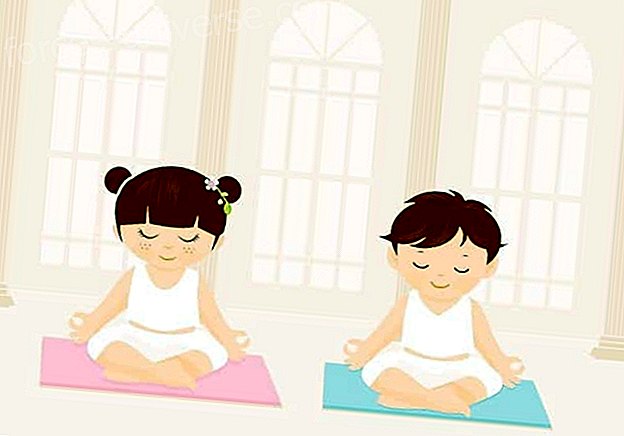
How do we achieve, in a system as dehumanized as in which we live, to raise children from love and calm?
How do we achieve the necessary balance, to sustain and accompany, with the respect and affection we so desire for them?
We can start at the beginning. There is no respectful upbringing possible, if the adult is not calm. Connected with his heart . In balance, to find within himself, unconditional love for his children.
These ten keys show how to find that balance, inhabiting calm, and then be able to transmit it.
Happy reading!

1. Accept that you cannot control everything.
You accept
That your life will change. That has already changed, that will continue to change. And it's OK. (There will be time to recover things, to do new things, or otherwise).
Accept that not everything is as you would like it to be. That your child does not always do things as you would like, that your partner does not either; that they are different people from you, with their singularities, and that's fine.
Accept that you will be late, that you will miss movies, that you will miss buses, trips, hangouts and maybe some friends. (You'll get them back. Or not. And it will be fine)
Watch the demands ...
… Remember that motherhood is not a good business for perfectionists.

2. Organize your time
Yes realistic.
Understand that you cannot do the same as before, at the same time.
Do not set unattainable goals, or even difficult ones.
And remember that, most of the time, less is more. It is worth three well done, that ten bad, fast and unfinished.
Prioritize, and go slowly.
Plan, use the calendar and agenda, and then take care!

3. Seek help
Delegate
Not everything depends on you.
You cannot (nor do you want… or yes?) Do it all by yourself.
(And incidentally, practice point 1 ... accept the help they offer you!)
Count on your partner.
Try to ask for help openly, specifically, directly.
Surely there are more people willing to help you than you imagine.
Family, friends, neighbors of the neighborhood. Breastfeeding associations, time banks, parenting groups, parent associations in school. Professionals of psychology, medicine or health in general.
And remember, you don't need to be defeated, to want to be better.

4. Practice calm
Usually do not be angry.
Most of the time, it is not worth it.
Every person, every house, knows what he needs to find calm. Find your method, and practice it. Walking, listening to music, being silent, opening the windows, meditating, going out to the countryside, staying at home, playing an instrument, praying, playing football, cards or parcheesi. Whatever it is, use it, if it gives you peace.
Pay attention to your breathing, the way you walk or drive, the way you talk, cook, do things. Try to slow down every thing you do, as if you were giving the "slow motion" to your day-to-day movie. And if you lack time, check point 2 ... (You may need point 3 as well).
Take care in relationships. Practice "emotional hygiene" : Clean what hurts you, throw away what doesn't work for you, take care of what is good for you. Your inner peace will thank you. (And your family, too)

5. Take care of the spaces
Our home is our temple. And it deserves to be taken care of and honest, so that it transmits peace and serenity to us.
As in point 4, each family knows what it needs. Order, cleanliness, warmth, effectiveness ... The important thing is that it transmits wellbeing to us.
(To achieve this, once again, points 2 and 3 are important here ...)
Normally, that each family member has their own space, their corner, inside the house, helps us feel good. It does not have to be a large space ... Sometimes, with a shelf shelf, a drawer or a basket, for each one, it is enough. The important thing is to feel that private space, and respected by others.

6. Have some time for yourself.
More valuable than gold!
Keep it as it deserves. Answer it, use it, love it.
Do what you want.
Get out or not; read, walk, draw, sleep !, watch TV, meet friends, with your mother or with the cafeteria waiter in the corner (no matter if you don't know him, they are usually very good at listening ).
Get back to yourself, learn how this new t is, and learn to love yourself. Enjoy yourself.
Remember old times, and congratulate yourself on the new ones.
Do what you like. And if you don't know, or you can't, or you don't remember, do something new!
It doesn't have to be great things, not much time. Sometimes, going out and throwing away the trash and taking five minutes to look at the stars and breathe the clean air at night is enough.

7. Take care of your body.
Our body is our home.
Not only the emotional, also the physical body, needs to be cared for and pampered to feel at peace with the world.
We are what we eat, and almost more importantly, how we eat it. Quality omission, organic, vegetarian or macrobiotic ; It will feel just as bad if you eat it standing up in five minutes ... Take your time. To cook it, and to take it; you deserve it.
(Time? Let's go back to points 2 and 3 ...)
The same with the dream: If we are not rested, nothing will work smoothly. Everything is more difficult, all our capabilities are affected. And since this is one of the most complicated points to get, according to what stage of the upbringing, and according to how our offspring are ... To arm yourself with patience, and points 1 and 9 (which is coming ...)
However, it may be useful to review your family's sleep routine, and try to optimize it. It is again very necessary, surely, review point 3 ... Have you ever tried to leave the kids with your partner (grandparents, babysitter ...) and make a dream cure, if possible, away from home? As new.
And if it's really complicated, you can use the "professional guidance" part of that point 3.
Pamper your appearance, to the point you need, to feel good. Some of us need to leave our hairstyles and makeup every day to feel comfortable (if so, I would advise you to return to point 1 ... or maybe you get it without stress, congratulations then!); to others it is enough with much less ... Anyway, pamper that you need to feel comfortable with you . (And remember that "pampering" means take care, try, put your intention: It's about being better, not putting on another burden!)
Physical exercise is great for releasing tensions, for recharging positive energy and filling up the reserves of oxytocin and other happy hormones. About to lose my temper? Try to go out and take a couple of laps around the block: Running or not, that depends on your desire ... Is it impossible to leave home? Jumping and squatting gives the same result ... In any space!

8. Find a space of intimacy for the couple.
I love the colecho.
And I also adore what pediatrician Carlos González says, about the possibility of slipping out of bed, and making love on the couch, in the kitchen, or wherever we want; because, hey, sex doesn't end out of bed!
And who says sex (huh? What was that? ...), says watching a movie, hugging, snuggling on the couch.
It happens as with the spaces: The same does not take a whole weekend at the beginning (just a little later, yes), but putting a movie on the kids and having a little time to get a massage, or having a coffee together, I could do wonders
Using point 3 here is legitimate and highly recommended, grandparents eager to spend an afternoon with their granddaughter will thank you ... And according to age, grandchildren eager to rest an afternoon from their parents, too, no matter how much they sting us ...!

9. Forgive yourself when you stumble.
In spite of everything, that you accept, organize yourself, ask for help, take care of yourself, your home and your partner, that you practice calm every day; There will be a time when you lose it.
You will do and say things that will then make you feel really bad.
Or you will have lost your temper many times before (if not, surely you were not reading this), and you already feel terrible about it ...
It's okay. It will be OK. (It's a good time to remember point 1 ...)
Remember that everyone needs pampering and that they hug us, especially when we least seem to deserve it. You too.
As Mónica Gutiérrez says, in her book "Rain and sugar recipes",
“Turn guilt into a mistake. Then, you learn. ”
An excessive level of guilt numbs our ability to react, and thus, we neither learn nor anything. So blame, just, to be alert, to know that what happened is important; and learn how to help us not to happen again.

10. Enjoy life!
Do things together, play with your children, look at the park, feel the sun, laugh, celebrate a birthday, one morning, good night.
Look at them. Look at her. Watch it.
Isn't it wonderful, simply, that it's there?
The next time you are about to lose your temper, remember that moment when you melted of love. And when you have it, don't let it get away.
You can draw in your heart a smile and go out into the world with it on. You have all the power to keep it there, bright, and let it illuminate all your day.
And the choice is only yours.
AUTHOR: Ana Martínez Acosta, Psychologist, Integrative Body Therapist. Family Psychology and Respectful Parenting
WEB: amapsicologia.org
SEEN IN:






